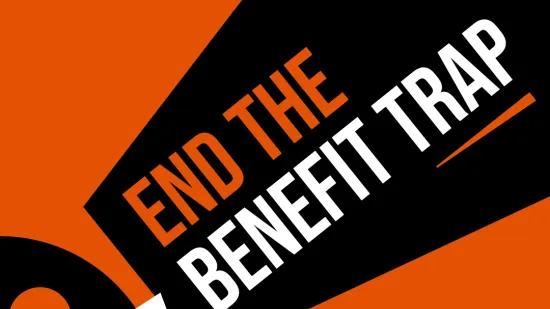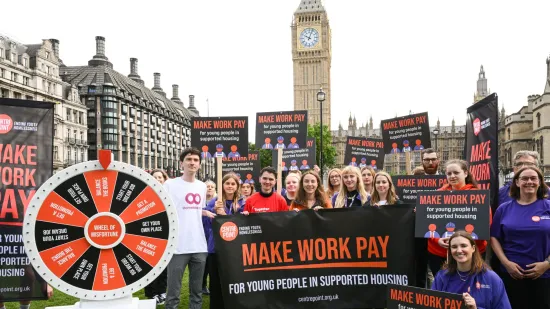A benefit system that puts people off work is a broken system.
Young people deserve to reach their full potential and be excited about their future in work. But right now, outdated benefit rules are holding them back.
The Government is so close to changing this in the upcoming Budget, let’s make sure they don’t forget.
So what's the issue?
If you work more hours, you should be better off. It should be that simple.
But this isn’t the case for more than 30,000 young people who have experienced homelessness. Because of a long-standing flaw in the system, the moment they work more hours, vital benefits are stripped away – often leaving them worse-off for trying to find their independence.
Join us to take the opportunity to fix a cruel quirk that leaves people living in supported accommodation worse off in work.
We are calling on the Government to Make Work Pay and end the benefit trap that homeless young people are facing. Will you join us?





